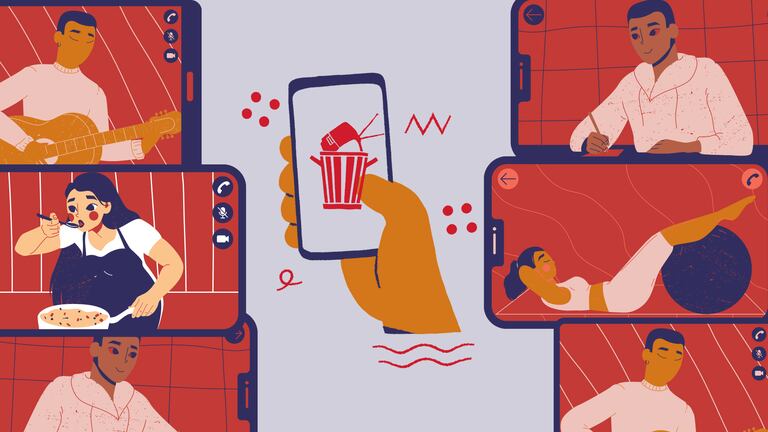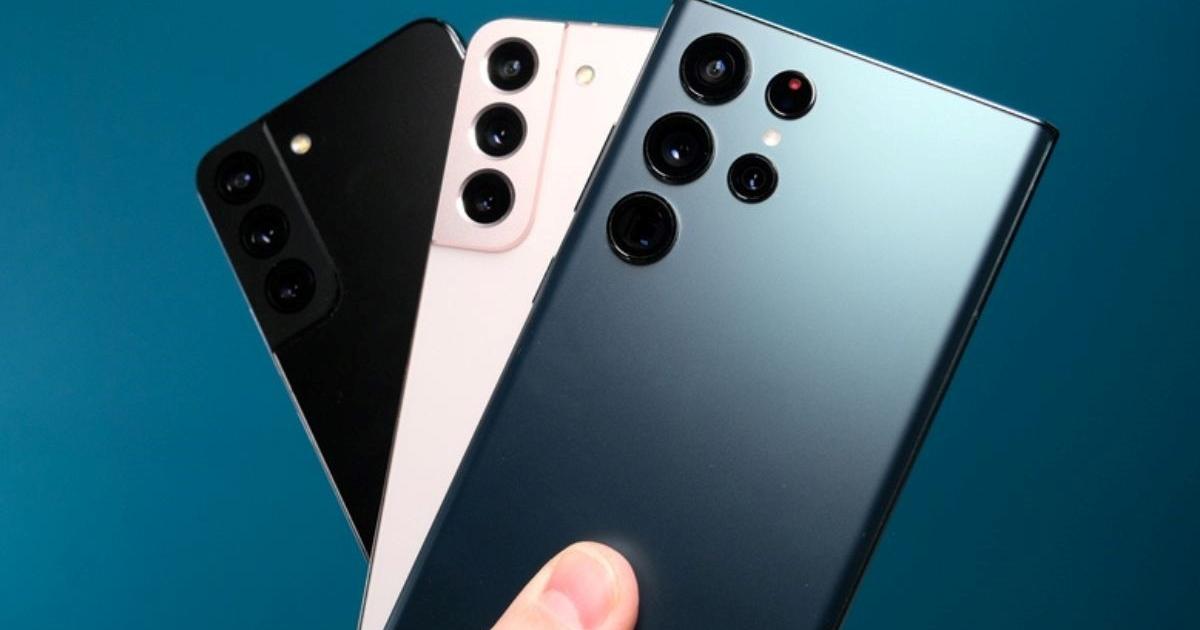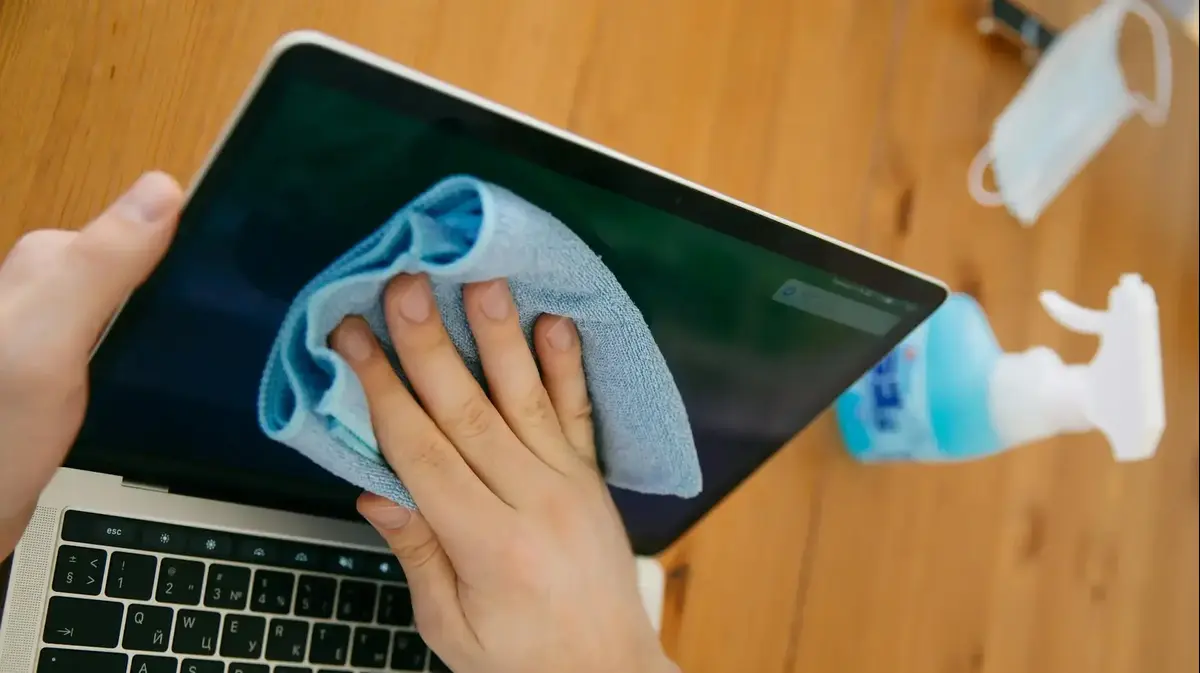We remove only 17% of the content we make and usually save 83%, whether we like it or not.
In the digital paradigm, few people are determined to decide what to save and what not to on their devices.
Especially if we talk about photos and videos on the mobile or in the cloud.
A study from the University of Sheffield has found that we delete only 17% of the images we take and save 83%, whether we like it or not.
For example, if we take 100 pictures of our dog, we will most likely delete only 17. What will happen to the remaining 83?
Perhaps a few end up published on the networks.
And the 80 that remain?
They will live in the confines of the memory of our mobiles with the vague promise that one day they will be debugged.
When there is time.
Nobody needs 80 similar pictures of a dog.
But few dare to eliminate them or find the time to do so.
Why are we like this?
"We tend to be not very selective with the content due to the enormous capacity of digital memories and the low cost of conserving them, which encourages excessive saving and discourages cleaning," suggests Jorge Franganillo, a researcher at the University of Barcelona and author of another study on the accumulation of photographs in the devices.
Proof of this is that many of the stored photographs are semi-duplicates, that is, almost identical images of the same scene, such as the 80 photographs of the dog.
And while erasing may seem like an easy task, it is actually a difficult process that makes periodic cleanings tedious because determining which photographs are expendable requires attention, involves cognitive effort, and, paradoxically, requires valuable time to be spent on worthless pieces.
Diogenes Digital
Today, taking pictures is too easy and within everyone's reach.
Before, with analog and manual cameras, each portrait was a kind of treasure that carried an economic cost and that had a specific purpose: to be archived in thematic albums or to adorn a space in a photo frame.
Now, with digital cameras embedded in our phones, very few images from our device are printed or converted to physical format and ironically, in most cases we will never see them again.
"
In these cases there can be a kind of digital Diogenes syndrome, behaving like the philosopher of ancient Greece that gives it its name, and irrationally accumulating digital and audiovisual material just for the mere fact that we can do it and archive it although perhaps We will not see or share it again.
It is related to more obsessive profiles, the need for control and emotional problems ”, underlines the psychologist and technology expert researcher, Celestino González-Fernández.
González-Fernández suggests, like Franganillo, that the causes of this
digital Diogenes
are in the cognitive effort involved in the selection, organization and elimination of material.
“The brain tends to save energy and effectiveness for the physical and mental balance of the organism, it tends to homeostasis as a survival mechanism.
If something involves a greater cognitive effort, such as this type of digital search, attitudes, emotions and behaviors related to demotivation and procrastination will be generated to avoid wasting energy ”, explains the psychologist.
In other words, it is normal for us to be lazy to delete and organize the 3,000 photographs on the reel.
Another cause of the excessive accumulation of photographs is due to the fact that, contrary to the brain whose memory is finite, lately technology has evolved so that we can archive more and more a greater volume of information.
“The brain eliminates memories for the sheer efficiency of information processing and memory consolidation because its capacity is limited.
For example,
Can you say what you had for breakfast on Tuesday, September 24 of last year?
Most likely not, but you do know who you gave your first kiss to ”, explains González-Fernández.
But the memory capacity of a device can be expanded to hold more, even those insignificant memories (like the photograph you took of that thing you had for breakfast that Tuesday, September 24).
Current technology has evolved more and more to allow us to artificially and additionally expand our memory capacity and to retrieve a large number of memories through photos or videos.
"But this retention capacity is more symbolic than useful, because like the brain, much of the information stored is usually forgotten," explains the psychologist.
"Although the storage capacity of digital memories seems to have no limits, let us remember that our attention span does have them", emphasizes Franganillo.
Avoid easy trigger
How to avoid the accumulation of images?
There are solutions for everything, even for the
digital Diogenes
.
Franganillo recommends avoiding the easy trigger — taking many similar photos of something or someone — and keeping your personal information space clean and tidy.
But if this sounds utopian, the expert recommends resorting to some applications.
“More and more operating systems and their respective applications incorporate the possibility of automatically deleting what they identify as junk files;
mobile applications such as
Files Go
are capable of identifying duplicate or ephemeral content, ”says Franganillo.
An example of an ephemeral file is memes or screenshots that, once viewed or shared, can be ruthlessly discarded.
There is also the option of creating thematic and organized albums within the mobile galleries, as well as in the different cloud storage services.
However, perhaps the key to everything is in an old saying: "Whoever cleans the cleanest is not the cleanest, but whoever dirties the least."
The next time your dog does something funny, take two pictures of him, not fifteen.
You can follow EL PAÍS TECNOLOGÍA RETINA on Facebook, Twitter, Instagram or subscribe here to our Newsletter.









